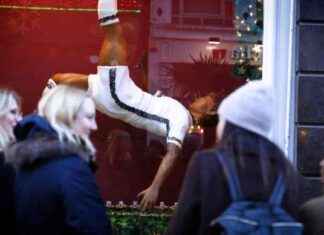Iran has been rocked by protests for weeks. The target of the criticism is the vice squad, which monitors compliance with the mullahs’ strict dress code. Now the police will be disbanded. Critics fear that nothing will change anyway.
According to the Attorney General in Iran, the vice police, which until now have mainly been responsible for enforcing dress codes for women, have been disbanded. “The vice squad has been disbanded, but the judiciary will continue to deal with this social challenge,” the daily Shargh quoted Attorney General Mohammed Jafar Montaseri as saying. There were no further details about the circumstances and the implementation of the resolution.
Critics of the political leadership reacted cautiously to the announcement. An Iranian activist wrote on Twitter that the problem was not the moral police, but rather the lifting of the headscarf requirement. “Women must be able to go everywhere without a headscarf,” he demanded. And this is “only the first step”. According to observers, the dissolution of the vice squad would not mean an end to compulsory headscarves for women, but it would represent an important partial success for the women’s movement in Iran.
The vice police were the catalyst for the system-critical uprisings in the country that have been going on for more than two months. In mid-September, the Islamic moral guardians arrested 22-year-old Mahsa Amini. A few strands of hair are said to have peeked out from under her headscarf. Amini died a few days later in the custody of the vice squad. Since then, people in Iran have been protesting against the Islamic system and its laws and regulations.
Since the protests broke out, many women, especially in large cities, have increasingly ignored the headscarf requirement and Islamic dress codes. According to Islamic law, women must wear a headscarf and a long, loose coat to cover their hair and body contours in public. This law has been part of the socio-political doctrine of the Islamic system for more than 40 years in order, as it is said, to “save the country and people from Western cultural invasion”.
Further protests – and according to opposition circles also strikes – are planned across the country from Monday. According to human rights activists, around 470 demonstrators have been killed since the demonstrations began, including 64 children and 60 security forces. Official information on this is contradictory. The Security Council speaks of 200, a commander of the Revolutionary Guards of 300 dead. In addition, thousands have been arrested in the past two months, including students, journalists, athletes and artists. Some demonstrators have also been sentenced to death by revolutionary courts.
According to the state news agency IRNA, four people were executed on Sunday for alleged spying for Israel. They are said to have been members of a network of the Israeli secret service Mossad, IRNA reported. The four people are said to have damaged public property and been involved in kidnapping civilians. IRNA did not provide any further details on the execution of the four people, including where they were arrested or executed and whether the incident was related to the ongoing anti-system protests. The spiritual leader Ayatollah Ali Khamenei accuses arch-enemies USA and Israel of instigating the protest movement in Iran.






